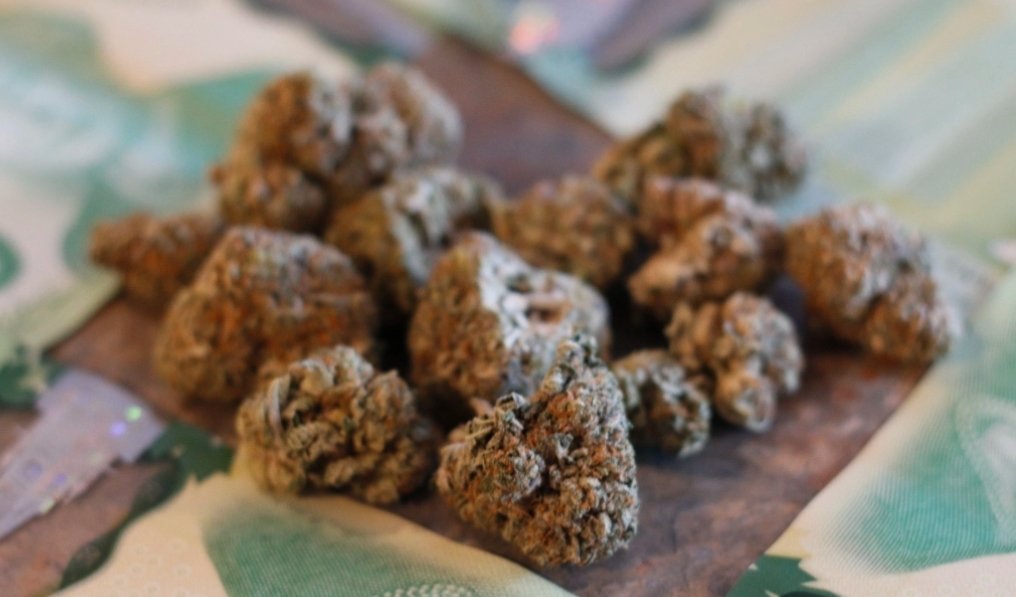The year 2023 was a pivotal one for the Canadian cannabis industry, as it marked the fifth anniversary of legalization and the launch of the legislative review of the Cannabis Act. From regulatory changes to market trends, from legal battles to social movements, here are some of the most notable stories that shaped the cannabis landscape in Canada this year.
Cannabis beverages get a boost from new equivalency rules
One of the most significant regulatory changes that took place in 2023 was the revision of the equivalency rules for cannabis beverages. Previously, one standard drink of cannabis beverage was equivalent to five grams of dried cannabis, which limited the amount of products that consumers could buy or possess. In June, Health Canada announced that it would reduce the equivalency factor to 0.25 grams of dried cannabis per drink, allowing for more variety and innovation in the beverage sector.
This change was welcomed by many cannabis producers and retailers, who saw an opportunity to tap into a growing market segment. According to the latest data from the Cannabis Council of Canada, cannabis beverages accounted for 6.7% of the total cannabis sales in Canada in the third quarter of 2023, up from 4.2% in the same period last year. Some of the most popular brands included Canopy Growth’s Quatreau, Hexo’s Truss, and Auxly’s Dosecann.
Cannabis testing standards become more stringent
Another regulatory change that affected the cannabis industry in 2023 was the introduction of new testing standards for cannabis products. In July, Health Canada announced that it would require all licensed producers to test their products for heavy metals, pesticides, and microbial contaminants, as well as potency and moisture content, before releasing them for sale. The new standards were aimed at ensuring the safety and quality of cannabis products, as well as aligning with the international best practices.

However, some industry stakeholders expressed concerns about the cost and availability of testing services, as well as the potential impact on product supply and diversity. Some small-scale producers and craft growers argued that the new standards were too burdensome and would create barriers to entry and innovation. Health Canada said that it would monitor the implementation of the new standards and provide guidance and support to the industry as needed.
Cannabis taxes remain a sore point for the industry and consumers
One of the most contentious issues that the cannabis industry and consumers faced in 2023 was the high level of taxation on cannabis products. Despite repeated calls from the industry and advocacy groups to lower or eliminate the federal excise tax on cannabis, the government maintained its position that the tax was necessary to discourage consumption and fund public health and education programs.
The excise tax, which is applied at the point of production, is calculated as the greater of 10% of the product price or $1 per gram of dried cannabis or equivalent. On top of that, consumers also pay the Goods and Services Tax (GST) or the Harmonized Sales Tax (HST), as well as any provincial or territorial sales taxes. According to a report by the Parliamentary Budget Officer, the average combined tax rate on cannabis products in Canada was 25.6% in 2023, compared to 15.8% for alcohol and 63.4% for tobacco.
Many industry experts and consumers argued that the high taxes on cannabis products made them less competitive with the illicit market, which still accounted for an estimated 40% of the total cannabis consumption in Canada in 2023. They also claimed that the taxes were unfair and discriminatory, as they did not reflect the medical and social benefits of cannabis, nor the costs and risks associated with its production and distribution.
Cannabis research and innovation flourish in Canada
Despite the challenges and uncertainties that the cannabis industry faced in 2023, it also witnessed a remarkable growth in research and innovation. From new product formats and delivery methods, to novel applications and discoveries, Canadian researchers and entrepreneurs pushed the boundaries of cannabis science and technology.
Some of the notable examples of cannabis research and innovation in 2023 included:
- The development of a cannabis breathalyzer by Cannabix Technologies, a Vancouver-based company that received approval from Health Canada to conduct clinical trials with its device.
- The launch of a cannabis-infused chewing gum by CanChew Biotechnologies, a Toronto-based company that claimed its product offered a fast and discreet way of consuming cannabis.
- The discovery of a new cannabinoid by a team of researchers from the University of Guelph, who identified and synthesized cannabidiphorol (CBDP), a compound that showed potential anti-inflammatory and analgesic properties.
- The creation of a cannabis-based COVID-19 vaccine by a group of scientists from the University of Saskatchewan, who used a genetically modified cannabis plant to produce spike proteins that could trigger an immune response against the virus.
Cannabis activism and social justice gain momentum in Canada
Another notable trend that emerged in 2023 was the increased activism and social justice efforts around cannabis in Canada. From advocating for the rights and interests of cannabis consumers and workers, to addressing the harms and inequalities caused by cannabis prohibition and criminalization, various groups and individuals mobilized and organized to make their voices heard and their demands met.
Some of the notable examples of cannabis activism and social justice in 2023 included:
- The formation of the Canadian Cannabis Consumers Union (CCCU), a national non-profit organization that aimed to represent and protect the interests of cannabis consumers in Canada.
- The launch of the Cannabis Amnesty Project (CAP), a grassroots initiative that sought to expunge the criminal records of Canadians who were convicted of simple cannabis possession offences prior to legalization.
- The establishment of the Cannabis Equity Coalition (CEC), a network of organizations and individuals that advocated for the inclusion and empowerment of marginalized and underrepresented communities in the cannabis industry.
- The organization of the Cannabis Day of Action, a nationwide event that took place on October 17, the anniversary of legalization, to raise awareness and support for various cannabis-related causes and campaigns.
Cannabis culture and lifestyle become more mainstream and diverse in Canada
One of the most positive outcomes of cannabis legalization in Canada was the emergence and evolution of cannabis culture and lifestyle. From arts and entertainment, to sports and wellness, to education and tourism, cannabis became more integrated and celebrated in various aspects of Canadian society.
Some of the notable examples of cannabis culture and lifestyle in 2023 included:
- The opening of the Canadian Cannabis Museum, a state-of-the-art facility that showcased the history, science, and culture of cannabis in Canada and around the world.
- The release of the Cannabis Cookbook, a best-selling book that featured over 100 recipes and tips for cooking with cannabis, written by renowned chef and cannabis advocate Matty Matheson.
- The hosting of the Cannabis Cup Canada, a prestigious competition and festival that celebrated the best cannabis products and producers in the country.
- The expansion of the Cannabis Trail, a network of cannabis-friendly destinations and experiences that offered a unique and immersive way of exploring Canada’s cannabis heritage and diversity.
Cannabis legislation undergoes a comprehensive review
The most anticipated and consequential story that the cannabis industry and community awaited in 2023 was the launch of the legislative review of the Cannabis Act. As mandated by the law, the federal government initiated a comprehensive and consultative process to examine and evaluate the impacts and effectiveness of the cannabis legislation, as well as to identify and address any issues and gaps.
The review, which was led by a panel of experts and stakeholders, covered a wide range of topics and themes, such as public health and safety, youth protection and education, market access and competitiveness, product quality and diversity, taxation and revenue, research and innovation, social justice and equity, and international obligations and opportunities.
The review, which was expected to last for 18 months, was seen as a critical and timely opportunity to improve and optimize the cannabis legislation, as well as to shape the future of the cannabis industry and community in Canada. The panel was expected to submit its final report and recommendations to the government by the end of 2024.



